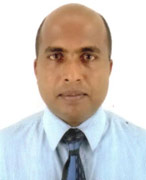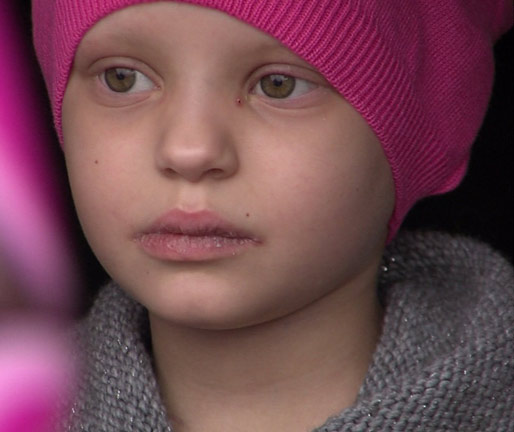|
February 4 is World Cancer Day:
Battling the Big C
|

Dr. Suraj Perera |
Cancer continues to remain one of
the leading causes for morbidity and mortality despite many advances in
the recent past by way of detection and treatment. Yet, the surge in
cancer patients and caring for them in state hospitals has put a huge
economic strain on the State’s limited resources. Thus the shift now is
towards preventing cancer and early detection
Spearheading the move towards a
cancer free society in Sri Lanka is the National Cancer Control
Programme (NCCP) of the Ministry of Health, Nutrition & Indigenous
Medicine. Here Sunday Observer speaks to Consultant Community Physician
at the NCCP, Dr. Suraj Perera, about cancer prevention and the NCCP
goals.
by Carol Aloysius
Excerpts…
Q: February 4 is World Cancer Day. What is its significance
globally and in Sri Lanka?
A: World Cancer Day brings together a wide spectrum of
organisations whose goal is to prevent cancer, detect cancer early,
uplift the lives of cancer patients and enable them to live out their
remaining years comfortably and with dignity.
|
7 warning signals of cancer
1) A change in bowel or bladder habits
2) A sore that does not heal
3) Unusual bleeding or discharge
4) Thickening or a lump in the breast or elsewhere
5) Indigestion or difficulty in swallowing.
6) Obvious change in a wart or mole
7) Nagging cough or hoarseness |
Q: Cancer is still widely prevalent in Sri Lanka, despite the
many interventions by the Health Ministry to halt this frightening
trend. What are the reasons for this surge in cancer cases?
A: This high incidence of cancer among both men and women on a
global scale is largely due to increasing of unhealthy life styles and
unhealthy environment. In addition, ageing populations, improvement of
screening and diagnostic facilities, and availability of cancer
treatment facilities along with increased awareness raising and improved
information systems have contributed to the increase incidence of
cancers. Delay in obtaining treatment is also a significant issue. Often
reasons underlying this reluctance to consult a physician despite
obvious signs of cancer symptoms, is linked to fear of undergoing
surgery, and anxieties regarding loss of employment, especially when the
patient is the sole breadwinner.
Q: What is the role of the NCCP in cancer control in Sri
Lanka?
A: The NCCP is the national focal point for prevention and
control of cancers in the country. It is also responsible for policy,
advocacy, monitoring and evaluation of prevention and control of cancers
and conducting surveillance of cancers and facilitating research related
to cancer. The NCCP coordinates with all cancer treatment centres,
national level institutes (E.g. Family Health Bureau, Directorate of Non
Communicable Diseases) and Provincial Health Ministries to implement
cancer control activities in Sri Lanka.
Q:Tell us something about the services you offer.
A: If we consider all cancers in general, one third of them
can be prevented through healthy lifestyles and keeping the environment
healthy. Therefore national level advocacy programs, awareness programs
are conducted in partnership with health and non health sectors
including religious dignitaries, Ministry of Education, civil society
and organisations. Media campaigns, development of health education
material on healthy lifestyles, awareness programmes for religious
dignitaries, and training of trainer (TOT) programs for school teachers
are some of the activities that were coordinated by NCCP. Leadership of
religious dignitaries to promote healthy lifestyles is worthwhile to
mention. Additionally, the NCCP collaborates with the Non Communicable
Diseases unit of Ministry of Health to promote healthy lifestyles
through island wide awareness programs, under the leadership of Regional
Director of Health Services (RDHS) at district level, while Medical
Officers Non Communicable Diseases (MO/NCD) coordinate activities at
health institutional level and (MOH) at area level who conduct healthy
lifestyle programs islandwide.
|

fox2now |
Q: Any other services you offer?
A: The NCCP also conducts a National Cancer Early Detection
Clinic at Narahenpita, Colombo 5, which operates from Monday to Friday
from 8.30 a.m.to 4.00 p.m. Teaching about self breast examination,
conducting clinical breast examination and mammographic evaluation for
breast cancer early detection, pap smear examination followed by
colposcopic evaluation by a consultant gynaecologist for cervical
cancer, oral examination by a dental surgeon for early detection of oral
cancer and medical examination for other cancers through actively
looking for early warning symptoms and signs are the early detection
services available at the clinic. Additionally, services for early
detection and diagnosis of cancers are evolving throughout the country
through Well Women Clinics, Dental Clinics, Breast Clinics and other
facilities at secondary (Base & District General Hospitals) and tertiary
care hospitals ( Provincial General & Teaching Hospitals). The Family
Health Bureau of Ministry of Health is co-ordinating the Well Woman
programme nationally and we have about 983 Well Woman Clinics (WWC)
functioning countrywide. Married females above the age of 35 are invited
initially to the WWC. Teaching self breast examination and conducting
clinical breast examination for breast cancer, Pap smear testing for
cervical cancer are the services offered at the WWC. These clinics are
conducted at MOH level and additional mobile clinics at community and
work place based settings can be arranged through the area MOH office.
Special breast clinics are conducted at tertiary care hospitals
(National Hospital, National Cancer Institute Maharagama, and Teaching
Hospitals, Kandy, and Kurunegala) for females with breast problems.
Q:What about oral cancer detection?
A: All out patient dental clinics throughout the country are
offering the services for early detection of oral cancers at the pre
cancerous level called Oral Potentially Malignant Disorders (OPMD).
Therefore those who chew betel or areca nut packets (e.g. babul,
beeda), smoke or consume alcohol should go to a dental clinic for proper
oral examination.
Q:Are all these services free of charge?
|
Burden of cancers in Sri Lanka
* The number of cancer patients since 2008
has zoomed according to the Cancer Registry. From 11,163
newly diagnosed patients in 2008, there were 13,890 new
patients last year (2015).
*In Sri Lanka the overall crude incidence
rate of cancer was 82.6 per 100,000 population in 2009
according to the National Cancer Registry published by the
NCCP. .
Oral cancer is the leading cancer among
males. All leading male cancers can be prevented through
healthy life style practices. The five leading cancer types
among males are oral, lung, oesophagus, colon and lymphoma.
* Breast Cancer is the leading cancer
among women. The five leading cancer sites among women were
breast, uterine cervix, thyroid gland, ovary and oesophagus.
* Number of cancer deaths in 2009- 11,286
with crude annual cancer death rate per 100,000 population
being 55.2% |
A: Yes. If they come to any of our government health
facilities for advice on prevention (Healthy Life Style Clinics), early
detection (Well Women Clinics and Dental Clinics throughout the country,
Breast Clinics at main hospitals & Cancer Early Detection Centre at
Narahenpita) and treatment (National Cancer Institute Maharagama, and
provincial cancer centres) our services are free of charge.
Q: Are you funded entirely by the Sri Lankan Government or do
you have foreign donors?
A: Major funding source is the annual Ministry of Health
budgetary allocation. In addition NCCP activities are supported by the
World Health Organisation (WHO) Country Office Biennium. Some activities
are supported through World Bank funds. In addition, International
Agency for Research on Cancer (IARC) of WHO also provides technical
support.
The NCCP is further supported by the joint programme of WHO,
International Atomic Energy Authority (IAEA) called Programme of Action
for Cancer Therapy (PACT) for improving facilities for cancer care and
capacity building.
Also the Cancer Early Detection Centre is a joint project of Rotary
Club of Colombo and other partners.
|
We can, I can
The World Cancer Day theme, ‘We Can, I
Can’ highlights the importance of collective and individual
actions to reduce the global burden of cancer. This theme
will continue for three years emphasising the importance of
community, family and individual interventions for all
aspects of cancer control including primary prevention,
early detection, prompt treatment, palliative and supportive
care. |
Q: So what is the Ministry of Health doing to achieve these
goals?
A: On December 29, 2015, Minister of Health, Nutrition &
Indigenous Medicine (www.nccp.health.lk), launched the National Policy &
Strategic Framework on Cancer Prevention & Control Its vision - ‘A
country with a low incidence of preventable cancers and high survival
rates with good quality of life and minimal disabilities & suffering
from effects of cancers.
Q: What are the strategies you use to achieve these goals?
A: The Health Ministry has already initiated several
strategies to combat cancer by involving as many organisations in the
central and provincial health sectors as well as civil society and the
community. Currently we are carrying out national level awareness
programmes coordinated by provincial and district ministries of health
.Awareness programmes are conducted for health staff, civil society
organisations, volunteers, school teachers, staff in government and
private sector including garment factories as well as the estate sector.
We also have education programmes on primary prevention of cancer and
early detection at routine clinics in hospitals and MOH clinics.
We are also strengthening activities relating to early detection of
cancer at our Well Woman Clinics and other health facilities. The
Ministry is also working through community groups to raise more
awareness on cancer, and overcome prejudice and superstitions that
surround the disease.
Q: Where and how can a person contact your Unit for more
information?
A: Currently NCCP is situated at Narahenpita, Colombo 5.
Administrative units, Technical units are located at the ground floor of
the Public Health Complex. A Central Cancer Early Detection Centre is
located at a separate private building, which is rented by the Rotary
Club of Colombo at Narahenpita.
For further enquiry: contact National Cancer Control Programme.
Contact Number: 0112 368627 |

